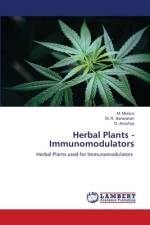von M. Monica
37,00 €
Nowadays, in the 21st century, the global health sector is facing various problems. Among the problems faced by the scientific communities are antibiotic resistance, antiviral resistance, anticancer resistance, side effects of commercial drugs, underdeveloped drug delivery mechanism, treatment of cardiovascular diseases, metabolic disorders, COVID-19, infections, and neurological disorders. Many substances that help immunity develop are called immunomodulators. In other words, biomolecules of biological or synthetic origin, capable of modulating, normalizing, suppressing, stimulating, or modifying any components of adaptive or innate immunity, and reducing inflammatory responses through oxidation or alkylation are called immunomodulators. Immunomodulators in clinical practice are mainly classified into immunosuppressants, immunostimulants, and immunoadjuvants. Immunoadjuvants are distinct stimulants of the immune mechanism that are added to vaccines to enhance the immune system. Immunostimulants boost the immune system, while immunosuppressants reduce the effectiveness of the immune system. Therefore, in this section, synthetic immunomodulators are discussed.






























